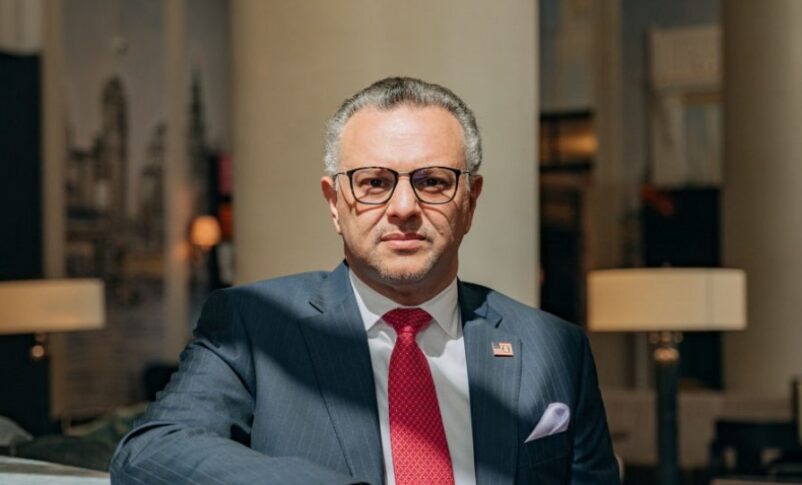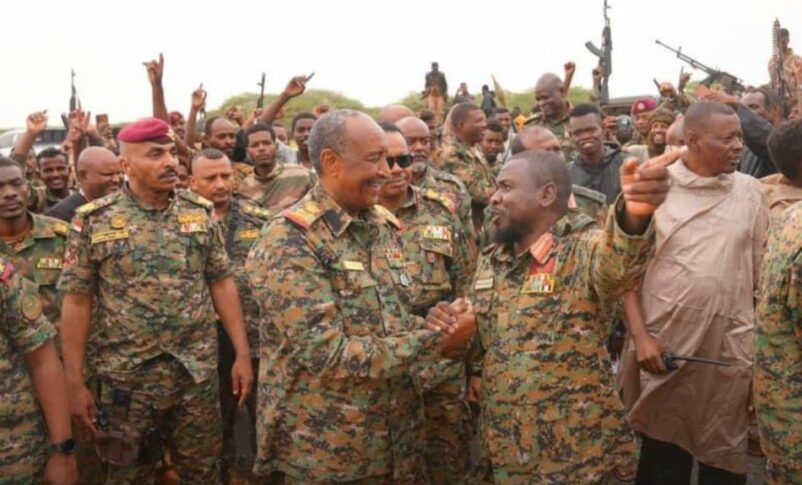Sudan’s army chief, General Abdel Fattah al-Burhan, has visited troops in North Kordofan after the military regained control of a strategic area last month, according to an announcement from the Sovereignty Council.
The council released photographs showing Burhan’s arrival in the Rahid al-Nuba area, a critical transport hub located roughly 215 kilometers (134 miles) from Khartoum. While no official explanation was given for the visit, its symbolism was clear as the army seeks to consolidate territorial gains.
The military retook Rahid al-Nuba on July 30 and is now preparing for a larger push to capture the town of Bara. Control of North Kordofan is considered vital by the army, serving as a stepping stone toward regaining West Kordofan and eventually advancing into the neighboring Darfur region, which is mostly under the command of the rival Rapid Support Forces (RSF).
The latest developments in Sudan highlight a conflict that shows no sign of abating. On Friday, the Sudanese army launched drone strikes against RSF positions in North Darfur, hitting multiple locations. In retaliation, RSF fighters shelled a displacement camp near El Fasher, leaving at least three civilians dead and seven injured, according to local activists.
Fierce Battles Engulf North Darfur Region
The drone attacks targeted RSF gatherings in towns such as Melit, located 65 kilometers north of El Fasher, and Al-Kuma, about 75 kilometers to the east. According to sources, strikes also hit the areas of Kafut and Al-Mona. Both Melit and Al-Kuma remain under RSF control and are considered strategically important for supply routes.
Following the strikes, the RSF launched artillery fire on the Abu Shouk camp for internally displaced persons on the outskirts of El Fasher. The attack underscored the vulnerability of civilians trapped in the conflict.
El Fasher, the capital of North Darfur, is the last state capital in the vast Darfur region not under RSF control. Since May 2024, the paramilitary group has encircled the city after seizing the other four capitals, turning El Fasher into one of the conflict’s most contested flashpoints.
Against this backdrop of violence, Sudanese civil society organizations have appealed to Washington for urgent intervention.
In a memorandum sent to Massad Boulos, the U.S. President’s Advisor on African Affairs, dozens of Sudanese groups pressed for an immediate ceasefire and targeted sanctions, warning that the conflict has reached genocidal levels. The groups described the U.S. role as a “last glimmer of hope before the situation spirals completely out of control.”

The coalition, which includes the Darfur Bar Association alongside 38 other human rights organizations, argued that the conflict has transformed from a domestic power struggle into a proxy war with wider international repercussions.
Their appeal came shortly after Boulos met with General Burhan in Khartoum earlier this week. The civil society groups welcomed the meeting, calling it a “genuine opportunity” for the United States to play a decisive role—provided Washington avoids earlier missteps. Among the mistakes cited was the so-called “Quartet” mechanism, which critics say sidelined Sudan as a primary actor in shaping its future.
The memorandum outlined a three-part plan for international action. First, the imposition of a monitored ceasefire to halt the fighting. Second, the application of sanctions targeting military leaders and their financial supporters. And third, a binding United Nations Security Council resolution to enforce an end to the war.
“The majority of the people no longer accepts the slogans raised by the two parties to the conflict,” the memo stated, underscoring how deeply disillusioned civilians have become with both sides.
The appeal also criticized previous peace deals signed in Juba and Doha, arguing that they entrenched elite power-sharing rather than encouraging genuine grassroots participation. According to the groups, such agreements only worsened divisions rather than healing them.
The conflict in Sudan, now entering another bloody phase, continues to threaten not only the survival of millions of civilians but also regional stability. With El Fasher under siege and air strikes spreading across Darfur, calls for international intervention are growing louder.
READ ALSO: Vice President Hails Fallen August 6 Heroes’ Service to Ghana



















